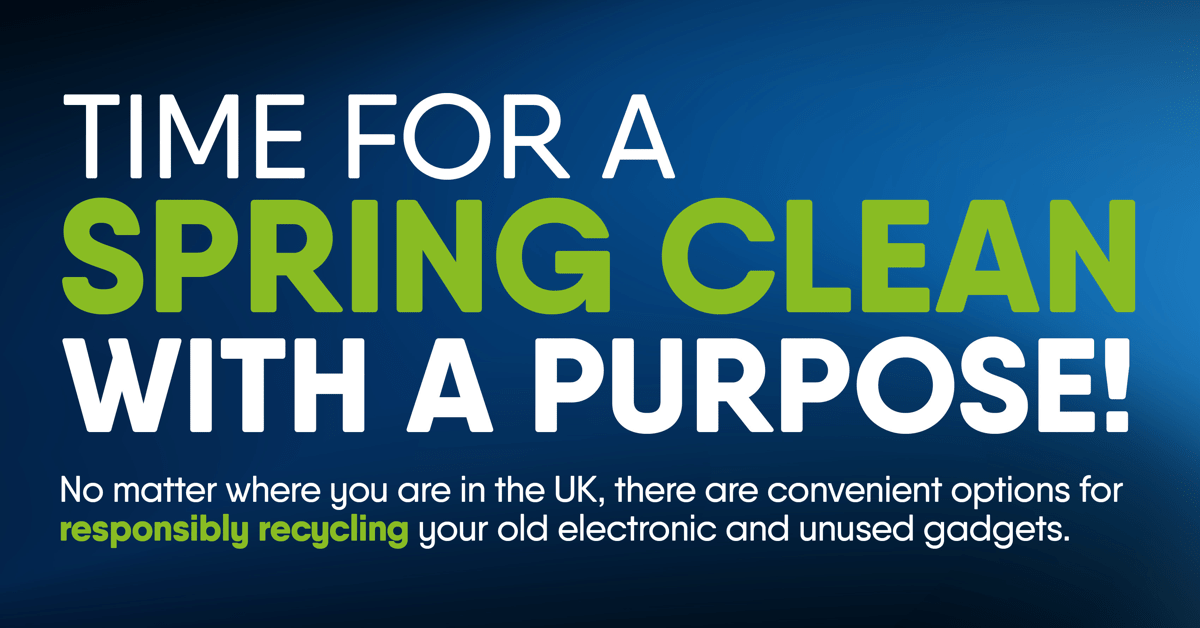CHOOSE
A DIFFERENT TERRITORY

Carelessly thrown away waste electronics can pose a significant risk of fire, injury, and environmental damage. Fortunately, responsibly disposing of devices and appliances has never been easier.
With the worst of the winter weather – hopefully – behind us, many households will be turning their minds to their annual cull of unwanted devices, clothes, and appliances.
Whenever you’re planning a clear out, it’s important to think about how to responsibly dispose of any waste electronics and electrical equipment (WEEE), from faulty toasters and kettles to bulkier items, such as fridges and TVs.
WEEE waste is a great source of high-quality recyclable plastics and valuable metals, such as copper, which can then be used again in the next generation of electronic devices. As a global leader in sustainable materials, EMR has decades of experience in recycling this material using a range of advanced technologies, including robotics and state-of-the-art low or zero carbon equipment.
EMR’s plastic recycling arm – MBA Polymers UK – is setting the international standard for converting plastic waste into high-quality recycled polymers, which can be used in applications such as new vehicles, consumer products and more.
In addition to the environmental benefits, recycling, and reusing material like this (known as ‘the circular economy’) also keeps more precious resources right here in the UK.
Unfortunately, this waste can also be very dangerous. The lithium-ion batteries which power so many of the electronic devices we rely on today can also present a significant fire risk if they are not responsibly recycled. Fires not only pose dangers to EMR colleagues and the local communities around our sites, but can also cause significant damage to the environment.
All of EMR’s sites comply with WEEE regulations as set out in EU law (and transposed into UK legislation). This complements our global reputation for going above and beyond industry standards on matters of environment and health and safety.
Dangerous incidents can still occur, however, and EMR works closely with regulators, emergency services and other businesses to limit the risk of fires. Responsibly disposing of your WEEE waste is essential and reduces this risk even further.
Wherever you live in the UK, there will be somewhere available to recycle this valuable WEEE waste.
EMR works with local authorities across the UK to collect and process any electronics and electrical equipment which arrives at council-run recycling centres. We also support a number of retailer schemes which allow customers to dispose of devices in store. In addition, EMR accepts WEEE at 14 sites nationwide.
Responsibly recycling WEEE waste is good for the environment, avoids dangerous fires and contributes to a circular economy for metals and plastics. But EMR isn’t stopping there.
By investing in new technology, advanced processes, and enhanced staff training – and by partnering with manufacturers and local authorities – EMR has committed to reaching net-zero carbon emissions by 2040.
MBA Polymers UK, meanwhile, is expanding fast with new sites in Dover and Peterborough to process the growing volume of plastics found in WEEE arriving at EMR sites.
Responsibly disposing of your electronics and electrical equipment means that you are playing an important role in the UK’s transition to a green economy.